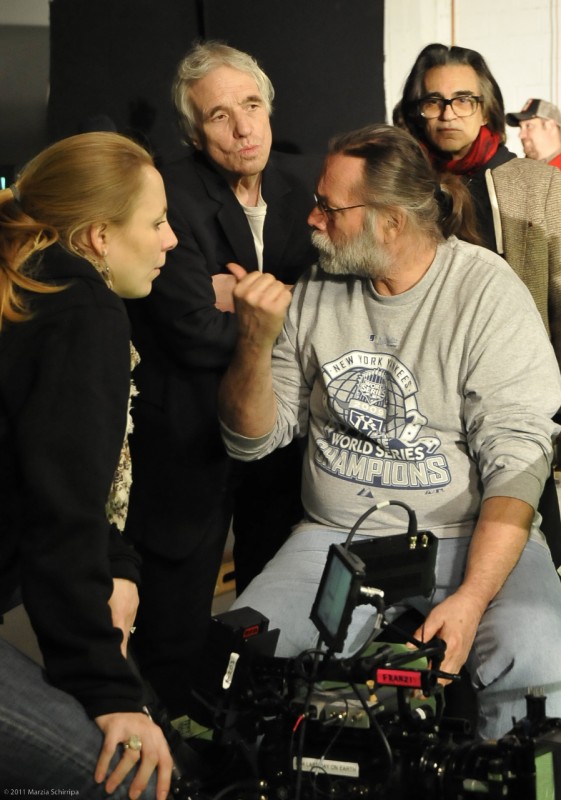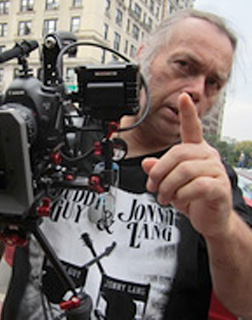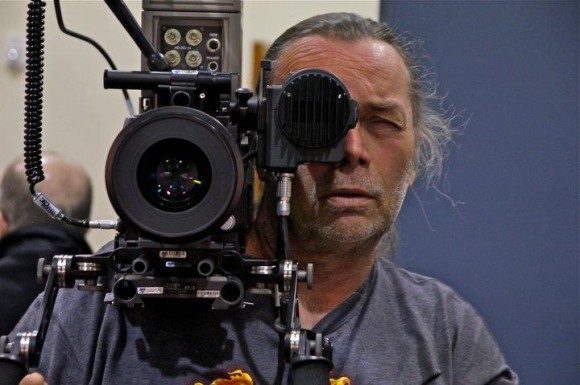Ken Kelsch: Director of Photography
Ken Kelsch’s philosophy is very similar to that of Nike’s: “Just do everything,” he says. As a cinematographer with over 40 years in the film and television businesses, his resume is as polished as perfectly as an Officer’s shoes.
Kelsch has served as the cinematographer on 49 film projects, including 31 feature length films. He has also worked as the cinematographer on various television shows and commercials. His most notable works include the feature length film Bad Lieutenant and the NBC T.V. series Medium. But one would never believe how he had arrived at this point in his life with his divergent background.
Kelsch grew up in New York and was one of four children. His father passed away when he was 14, which left his mother with the sole responsibility of supporting all of her kids. Kelsch was still able to pursue his interests despite growing up poor and being fickle about his career path.
For Ken, photography remained an unwavering fascination of his. He had a dark room since he was twelve years old and it helped him cope with his bashful nature. He became president of his seminary school’s photography club and upon graduation of high school he decided that he wanted to become a doctor. However, that notion was quickly kicked to the curb when he sought to join the military during college, eventually enlisting in Special Forces and going off to the Vietnam War in 1965. “I didn’t think I was going to be around to see my twenty-third birthday,” Kelsch recalled.
Photography took a short hiatus for Ken because he decided that he wanted to put aside taking pictures and actually live his life to create new experiences. While working at MAC SOG Command and Control North 5th Special Forces, Kelsch and his fellow soldiers were responsible for cross border operations in Vietnam, Cambodia and Laos and were directly involved with interdicting trips coming into the Ho Chi Minh Trail. And although he wanted to stay in the military, he had second thoughts. He frequently pondered, “Would I make it through a second tour?”
Yet another life-altering decision was made when Ken left the military after his first tour and went back to school to finish his undergraduate studies. He chose to attend Montclair State University in New Jersey and reacquainted himself with photography after purchasing a new camera. The school had no film program, but there was a cinema club and Kelsch became the president. He “bullied” his way into getting funded and made his first film, which was his entrée into NYU graduate school.
His acceptance into NYU led to another enlightening decision. Since he couldn’t afford his tuition, Kelsch had to work full-time and save up. This experience really helped Ken come into his own. After he saved enough and was done working, he decided he was never going to work a steady job.
That inclination helped him pursue cinematography because he knew he would be able to work on different projects at different times in different places.
And this takes us back to Kelsch’s philosophy. During his time at NYU he hopped on anybody’s film shoot because he wanted to learn empirically. He believes the only way to truly learn is to physically operate every piece of equipment that you can get your hands on because those moments of instruction will lead to your success on another set. But sometimes, Kelsch would take matters into his own hands when he wanted to explore more equipment.
Every time he received a paycheck for the fruits of his labor, he would purchase new film gadgets. “I never made a profit off of a film because I would always buy gear with my money,” he said. He preaches the importance of using various film tools because cinematography encompasses EVERYTHING. The cinematographer is responsible for making the image under the director’s tutelage, determining the composition of the image, lighting it, framing it, protecting it; basically every step from start to finish. “You have to do the impossible every day and it has to be within a time frame. Plus you are dependent upon so many other people to exercise your vision,” Kelsch said.
Kelsch also made certain that he kept his “encyclopedic” knowledge of film up to date, and that many others should too, because there are people out there who will “cut their wrists” to do your job. For example, he believes lighting is the most important aspect of cinematography, which is why his wit is unremitting when it comes to that subject. “If the lighting is bad, then it’s a bad movie,” Kelsch said boldly. Lighting is important because it expresses personality, which helps shape one’s image.
“My kids used to ask me ‘Daddy what’s your favorite color?’ and I would always say ‘dark,’” chuckled Kelsch. “In my soul I’m a pretty dark guy, attitude wise and everything else.” He considers his job a failure if his image isn’t retrieved and portrayed, whether it is dark, jovial, or neutral. “I’m a mission oriented guy. I’ll do whatever it takes to get the image. That’s my job,” he said imperatively. If Kelsch could express his work ethic and success in terms of lighting technique, it would certainly be a very bright image.
Kelsch is currently working on Abel Ferrara’s “June Project” with Gerard Depardieu and Jackie Bisset.
To learn more about Ken Kelsch, click any of the links below!






